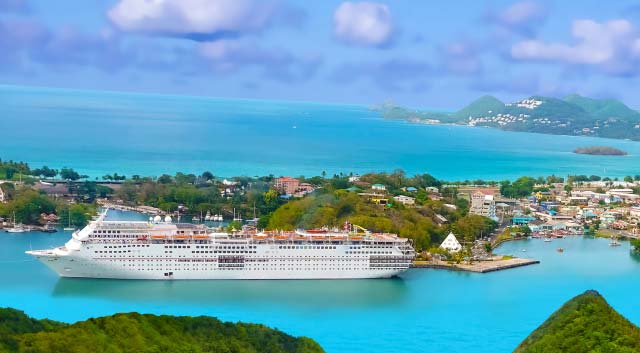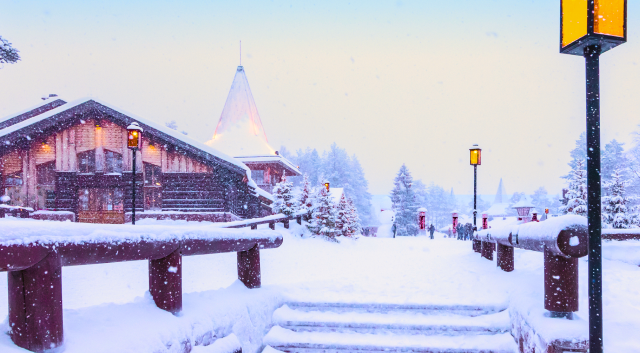Americans in Portugal: Your Destination Guide
Portugal is having a moment – and why not? It’s sunny, warm, and welcoming to digital nomads and American expats.
If you hear Portugal calling your name, here’s what you need to know about Europe’s ocean-facing hotspot.
Language
People in Portugal speak Portuguese. Weird, huh? The good news is that many speak English, some speak Spanish, and if you speak Spanish, you can make out a lot of what’s being said and written on street signs and buildings.
Regardless of your linguistic background, locals love it when Americans try to speak their language. You can win their hearts with phrases like:
- "Obrigado/a" (thank you): Your golden ticket to instant local love
- "Por favor" (please): Because politeness is universal
- "Desculpe" (sorry/excuse me): Because accidentally bumping into someone is an international talent
Destinations
For a smaller country, Portugal doesn’t shortchange you with amazing places to visit.
Lisbon
Lisbon is one of Europe’s great cities, full of colorful neighborhoods, wonderful museums, great places to eat and drink, parks, ocean views, and pastry shops (pastéis de nata) that will change your worldview.
It’s hard to go wrong when you explore Lisbon, in part because it has Europe’s most beautiful sidewalks. It’s true!
Beyond admiring the sidewalks, Lisbon experiences that should be on everyone’s list include the Maritime Museum, a tribute to the country’s seafarers; the Belém Tower, a UNESCO World Heritage site that dates from the 1500s; and Clube de Fado, the best place to hear fado, Portugal’s national music.
Watch out: Lisbon will cast a spell on you.
Porto
Porto is where port wine was invented. If you’re not familiar with port, it’s the double espresso of wines. Use in moderation.
Porto is north of Lisbon, on the Douro River as it spills into the ocean. As a result, it offers striking riverfront and oceanfront views.
As with many cities in this part of the world, Porto’s churches are its showpieces, blending multiple architectural influences into a graceful whole. Hole-in-the-wall bookstores invite exploration, even if you can’t understand a word in any of the titles.
Waterfront parks enhance the placidity of this place, a second city in name only.
Algarve
Portugal’s southernmost region, this beach paradise offers the vibrant energy of Ibiza, but with a touch of elegance.
If you’re looking for the European coastal village of your dreams – whitewashed houses, limestone cliffs, nets hung out to dry, the smell of salt and fish in the air – you’ll likely find it in the Algarve.
Better yet, there’s a wide range of lodging options, from resorts to pensions, so whether you want to live like the locals or indulge in some self-care, you’re covered.
Like many places throughout Portugal, the Algarve welcomes digital nomads, so if you could do your job anywhere, why not here?

Practical Travel Tips
Money
- Euros are the local currency.
- Credit cards are widely accepted, but carry €50-€75 cash for those charming small cafes and local markets.
- Tipping isn't mandatory. Tips of 5%-10% are appreciated but not expected.
Transportation
- Mass transit is cheap, clean, safe, and excellent.
- Intercity trains are similarly clean, fast, and efficient. High-speed options can cut travel time in half, but the regional trains are a great, albeit slower, way to see the country.
- Rent a car if you're feeling like exploring on your own, but streets are narrow in cities and in the countryside. Fortunately, people drive on the right, so there should be no learning curve.
- Cities and the countrysideare bikeable – not Amsterdam-level bikeable, but good enough. Choose a wide-tired bike for all those cobblestones.
Food
Portuguese cuisine is based around seafood, augmented with local produce, meat and eggs.
· Arroz de Marisco is the country’s take on paella, with seafood like shrimp and mussels combined with tomatoes, rice, and more.
· Bacalhau (salted cod) is served in a variety of ways, most notably with scrambled eggs, potatoes, and olives.
· Porto’s take on the Cuban or muffaletta is the Francesinha, made with ham, roast beef, cheese, and beer sauce.
· Finally, Portugal is renowned for its pastries. One taste and you’ll be hooked.
Cultural Norms
- Dress is spiffy casual. The locals take pride in looking put-together.
- Dinner starts late – 9 p.m. is considered early. Forget about those bedtime snacks.
- Punctuality is more of a suggestion than a rule. While siesta isn't generally a thing in Portugal, the siesta feeling is.
When to Visit
- April-May and September-November are the more temperate, less crowded months.
- Summer brings heat, tourists and higher prices.
- Winter is mild but rainy, so pack something stylish and waterproof.
Budgeting
Portugal offers incredible value compared to its European neighbors. Here’s what you can expect to pay:
· Budget travelers: €50-€75/day
- Mid-range travelers: €100-€150/day
- Luxury travelers: €200/day and up – way up
Also read: Tips for Luxury Travel on a Budget: Your Guide to Affordable Elegance
Portugal is one of the world’s best destinations for multiple reasons – it’s sunny, cosmopolitan, diverse, beautiful, and wallet-friendly.
Trips to places like these deserve to be covered with travel protection plus assistance services from Generali Global Assistance. We’ve covered trips to Portugal for thousands of travelers over decades; we can help protect you, too.
Get a quote today.
Also Read: The Ultimate Cruise Packing List, Tips and Hacks (Free Digital and Printable Checklist)
8456512502


